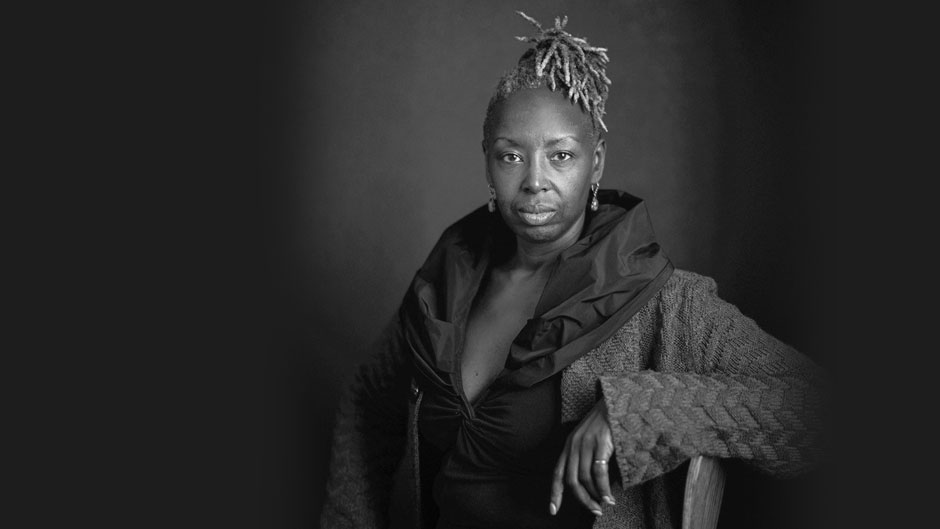As a musicologist specializing in African-American and Caribbean music, Frost School of Music associate professor Melvin Butler can’t help but notice how black scholars remain underrepresented in his field.
“Most scholars writing about African-American music, whether its jazz, rhythm and blues, or even hip hop, tend not to be African Americans,” he said.
Which is one of the reasons that Butler, an acclaimed saxophonist, is elated to welcome his longtime mentor and friend, Kyra Gaunt, to the University of Miami on Friday. An ethnomusicologist and social media researcher from the University at Albany, Gaunt will present her research on the racial oppression and sexploitation of young, black girls who appear in YouTube videos.

Butler, who met Gaunt when he was a graduate student at New York University, said she stands out not simply because she is, like him, "from a historically marginalized population" of black music scholars, but also in terms of the focus and impact of her research.
A poet, singer-songwriter, social activist, and an inaugural TED fellow, Gaunt has long stood out for what Butler calls the courage and boldness of her research. She was one of the first music professors to teach hip-hop, and her publications on musical blackness, girls’ musical play, and what she calls “kinetic orality”—the word of mouth and word of body that gets passed down from generation to generation—contributed to the emergence of black girlhood studies and hip-hop feminism.
Published in 2007, her award-winning counter-history, “The Games Black Girls Play: Learning the Ropes from Double-Dutch to Hip-Hop’’ was an eye-opening look at the hidden but influential musicianship of black girls’ game songs—how, for example, the intricate rhythms and rhymes they chanted in the 1950s, ’60, and ’70s while skipping between two alternately turning ropes inspired generations of mostly male hip-hop artists.
As Gaunt noted in a 2018 TED talk, although girls weren’t allowed to play sports back then, they ruled the playground, passing from generation to generation the beats, chants, and movements they learned while keeping time with the rapid-fire TICK-tat, TICK-tat, TICK-tat of the twirling ropes.
“Boys overheard these, too, and that’s why so many hip-hop artists sampled from things they heard in black girls’ game songs,” Gaunt explained. “It’s why ‘Country Grammar’ by Nelly became a Grammy-winning single, because people already knew the words: ‘We’re going down down baby your street in a Range Rover…’ All people who grew up in any black urban community would know that music.”
Now, in the age of always-on social media, Gaunt has expanded her research to study the unintended consequences of girls of color growing up online, where, as she has put it, “Not managing your online presence can be very costly for the most vulnerable populations.”
In her talk, “#MeToo + Misogynoir: How Music, Search, and New Artists Weaponize Gender Inequality on YouTube,” she will present her research on hundreds of YouTube videos of young, black girls twerking, which Gaunt describes as “bouncing their booties like a basketball to the beat of a rap song.”
“For me,” she has written, “the question keeps coming back to who profits from the social or economic capitalof the cultural performance known as twerking?”
The answer, Butler said, shouldn’t just interest music majors, or musicians. As he notes, Gaunt’s scholarship goes far beyond music.
“It is relevant across so many disciplinary boundaries,” he said, “from gender studies and media studies, to anthropology and sociology. After all, who isn’t impacted by social media?”
The lecture will be held at 5 p.m. Friday in the Clarke Recital Hall in the Weeks Center for Recording and Performance.

